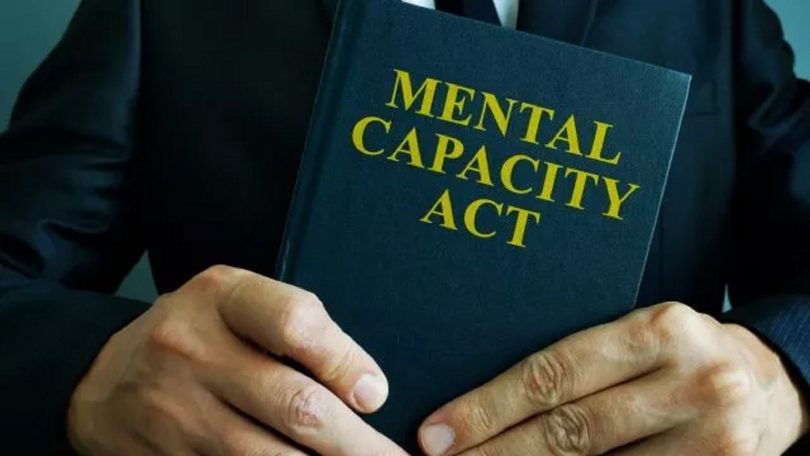Table of Contents
Mental incapacity in probate cases means that a party cannot participate in the process or conduct critical activities like appointing an attorney or making a will.
In this case, the process gets complicated, and legal and ethical considerations come into play.
This guide explores the determinants of mental incapacity in estate settlement, victims’ protection, and the principles of autonomy and best interest.
Key Takeaways
- A person with mental incapacity cannot make decisions or perform certain acts like making a trust or will.
- Probate cases can get complicated when either the beneficiaries, heirs or the decedent has mental incapacity.
- In this case, the probate court determines proof of testamentary capacity. It could also appoint guardians or conservators to ensure the well-being and interest of the incapacitated individual.
READ MORE: Record Click’s Heir Research Services, Costs, And Expectations.
Mental Capacity When Making a Will or Trust

The testator must be of sound mind
A person writing a will must have testamentary capacity, which is a combination of legal and mental capacity. This capacity is critical in the probate process as it indicates that the will reflects the testators’ true intentions and wishes.
Besides, when testators have testamentary capacity, they are less likely to be influenced by external pressures when listing beneficiaries and heirs.
The two most common legal indicators of mental capacity are;
- Signs of mental or brain impairment resulting from a health condition or external factors such as substance abuse.
- Inability to make specific decisions as needed.
The person must also demonstrate exceptional mastery of the four elements involved in making a will or a trust, namely;
- Understanding the meaning and process of making a will and possible outcomes or challenges in a probate court.
- Having a clear recollection of their properties, including the liabilities and assets and their classification.
- Understanding and expressing genuine interest in inheritance, including all the beneficiaries and heirs and their relationships.
- Being free from threats, manipulation, coercion, deception, and any pressure to make a will in a way that does not reflect true intentions and wishes.
The probate court can overturn a will if it is convinced that the process failed to apply any of the above-mentioned elements.
One example is the 2018 Estate of Stoker case, where the Texas Court of Appeals overturned the will after it found that the testator lacked testamentary capacity when drafting the will.
Some of the common factors that cause testamentary incapacity include age, illness, medication, alcohol, and stress.
How To Ensure or Prove Testamentary Capacity

Estate settlement should be done legally and ethically
When drafting a will, it is imperative to prove that you have the testamentary capacity to do so to avoid disputes and conflicts among beneficiaries and heirs.
The four common ways to prove your case include;
- Consulting An Attorney: A legal expert understands the legal requirement in your jurisdiction regarding proving testamentary capacity. Therefore, they are better placed to guide you in making your will valid and ensuring all the requirements and formalities are met.
- Obtain A Medical Report: A medical report details the diagnosis and prognosis of your mental state, confirming that you had a sound mind when writing your will. The report can serve as evidence to refute any allegations or doubts about your testamentary capacity when planning your estate.
- Record A Video: A video recording when making the will or trust can show or help verify your behavior, communication, appearance, and understanding. Besides, you can express your wishes through the recording to reiterate what’s in the will.
- Have Witnesses: Having witnesses in your estate planning is another way to prove your mental capacity, as they can attest that you were of sound mind and faced no threats or pressure. Witnesses can also help clarify statements in your will and refute any claims of manipulation or incapacity.
Ethical Considerations in Handling Mental Incapacity Cases

Ethical And Legal Considerations
Mental incapacity in probate cases raises a myriad of ethical dilemmas that affect the interests and rights of all the parties involved.
Here are some of the common dilemmas that require crucial considerations:
Respect For the Testator’s Wishes and Protecting Their Welfare
When a testator is deemed mentally unfit and creates a will that excludes their children and spouse, how should the probate court go? How does it determine whether the testator was genuine in his decision or was influenced by their condition or other players?
In this case, the probate court faces an ethical dilemma on whether to respect the testator’s wishes or protect their welfare.
Intervene or Let Nature Take Course
Another ethical dilemma is whether to help the mentally incapacitated testator or respect their refusal of treatment. For instance, if a testator suffers a mental health condition but has an advance directive that discourages treatment, should the directive be followed, or should there be an intervention to treat the condition and provide care and comfort?
You should apply the following principles and guidelines to address these and other ethical considerations.
- Promote Autonomy and Dignity: Any intervention should be cognizant of the individual’s inherent worth and value as a human being and, therefore, tailored to their preferences.
- Find A Balance Between Preferences and The Law: As you consider the best intervention for the individual’s mental, spiritual, social, emotional, and physical well-being, be sure to also comply with relevant laws. Common laws that govern Probate and mental capacity matters include the Uniform Guardianship, Conservatorship, and Other Protective Arrangements Act.
- Respect the Client’s Privacy: Professional intervention should not compromise your loyalty or judgment to the client. Above all, you should maintain client confidentiality and protect their personal data from unauthorized use or access.
What Do Guardianship and Conservatorship Regulations Say?

Guardians and conservators are bound by the law
Guardianship And Conservatorship Regulations allow representation for an incapable person to ensure their rights are respected.
A guardian is entitled to the ward’s personal care and daily life needs, such as personal hygiene, food, and healthcare. Similarly, a conservator manages the assets and financial affairs such as collecting income, paying bills, and filing taxes.
Most importantly, the guardian and the conservator must act in the individual’s best interests and wishes or court directives.
Limitations On Guardians and Conservators’ Authority

Assets and Estate distribution
While the guardians and conservators serve as personal assistants to mentally unfit individuals or minors, they are subject to specific codes of conduct, such as;
- They cannot violate the ward’s fundamental liberties and civil rights.
- They must adhere to the ward’s financial goals and estate plan.
- They must submit regular reports to the court about any expenditures, decisions, and activities on behalf of the ward.
- They should provide relevant documentation and information for audits.
- They must report any incidences or concerns about their roles, the ward, or other parties to the court.
Ethics And The Law
Mental incapacity is a sensitive and complex issue that could affect individuals and families. Therefore, you must understand the legal rights, responsibilities, and implications likely to occur in probate cases and how to maneuver the process.
So, if you’re facing a probate case involving mental incapacity, consider consulting a qualified lawyer to help with specific needs and situations.







